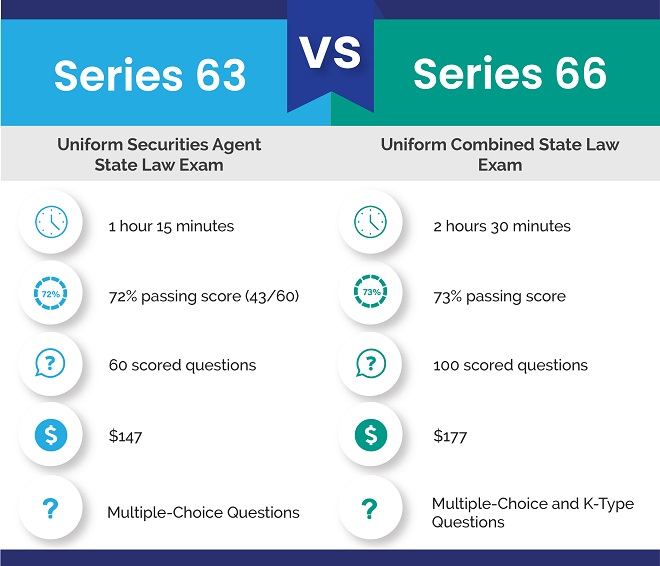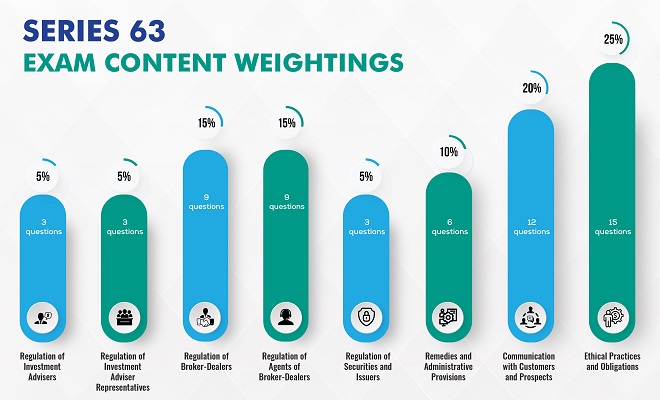The first exams you will take in order to become a registered representative will most likely be the SIE and the Series 7. Although these licensing exams register you as a General Securities Representative with FINRA, you still need to earn your state registration in order to give investment advice and sell securities within each state.
This is where NASAA and the Series 63, 65, and 66 come in. These three exams are state securities law exams that must be passed in order to be registered within a given state. The Series 7 license coupled with the Series 63 license allows you to operate as a registered agent in a given state. In this article, we will be focusing on the Series 63.
The Series 63 is officially known as the Uniform Securities Agent State Law Exam. It is shorter than the Series 66 and 65. Most representatives take the Series 66, as it is the “combined” that essentially counts as credit for both the Series 63 and 65. If you took a Series 6 instead of a 7, you may find yourself taking the Series 63. Below is a breakdown of the Series 63 compared to the Series 66:

As you can see, the Series 63 is much shorter than the Series 66. There are no co-requisites for the Series 63, so you can take it without the SIE or Series 6/7. However, it makes sense to wait until you are employed by a member firm before taking the exam; that way, they can pay for you to take it and you will have access to test prep materials at (hopefully) no cost to you.
Both the Series 63 and Series 66 cover a lot of the same material, so here is a breakdown of the content weightings for the Series 63.

As you can see, there are a lot of questions on regulations for broker-dealers, agents, investment advisors, and investment advisor representatives. You will want to make sure you study the intricacies of the various acts, laws, and rules as the majority of the questions cover those subjects.
You should plan on completing the Series 7 license and then the Series 63 license. You may end up taking the Series 65 after the 63, but that will depend on your line of work. Remember to study hard for the 63, as the better you understand the material, the easier it will be to pass a Series 65 or 66 should the need arise.
For more details, check out our Ultimate Guide to Series 7 Licensing.
